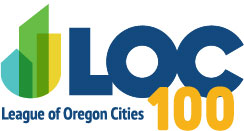LOC News
Measure 110 Will Reduce City Revenues
Oregon voters approved Measure 110 earlier this month by a wide margin, 58.5% to 41.5%. The measure will decriminalize possession of small amounts of street drugs, giving violators a choice of paying a $100 fine or undergoing drug screening by phone where they will be connected with optional treatment. The measure will also reduce penalties for possession of larger amounts of drugs down to a misdemeanor in most cases. Measure 110 is scheduled to take effect in February, but Senate President Peter Courtney has indicated to The Oregonian that the Legislature will need to consider legislation to implement the changes. The LOC lobby team will be heavily engaged in the public safety and financial aspects of this conversation.
The LOC is still working on the precise financial impact, but based on initial information from the Oregon Department of Revenue, it looks like starting in March of 2021 quarterly revenue to cities from state marijuana taxes will see a 73% decrease, from about $4.1 million down to $1.125 million. This is the city share only, and cities receive about 10% of the state’s total revenue. City finance staff who are trying to understand budget implications should multiply their most recent quarterly distribution of the state tax times 27% for an estimate of what they might receive in March 2021. Quarterly distributions after that point will remain flat. Measure 110 only affects distribution of the state’s 17% tax, local marijuana taxes of up to 3% are not affected.
In terms of the fiscal impact on cities, this could not come at a worse time. While marijuana revenue is a relatively small slice of overall local revenue, city finances are already stressed by the COVID-19 pandemic. Cities have seen losses related to reduced lodging taxes, gas taxes, utility revenues, and fees. On the cost side of the ledger, cities have been spending to make facilities safe for workers and residents, spending on technology to move work online, and investing heavily in economic support for local businesses and residents.
Marijuana money is unrestricted and typically goes into the city general fund. It is used to pay for all the services cities provide, including general government, public safety, water, transportation, community development, libraries, senior and other social services, parks and recreation, and so on. Some of these services have dedicated revenue streams that cover at least a portion of the cost, others do not. The LOC will be advocating for money to backfill the lost revenue from Measure 110, including the ability for cities to increase their local marijuana tax beyond 3%.
Contact: Mark Gharst, Lobbyist for Tax, Finance, and Economic Development - mgharst@orcities.org or 503-991-2192
Last Updated 11/20/20

